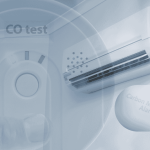Let’s face it—choosing the right air conditioning unit can be as tricky as trying to find the cold spot in a July heatwave in Houston, TX. If you’re standing in an appliance store or scrolling online, scratching your head and thinking, “Are Daikin air conditioners good?” — you’re not alone. That’s the very question that brought you here, right?
We get it. You want reliability, energy efficiency, peace of mind, and maybe a little quiet comfort thrown in. You’re not just shopping for an air conditioner — you’re investing in your comfort, health, and monthly utility bills. Whether you’re a homeowner battling blazing summers or an HVAC contractor searching for a dependable hvac manufacturer, understanding what the Daikin brand brings to the table is essential.
Daikin’s History and Reputation in the HVAC Industry
Daikin isn’t the new kid on the block. Founded in Japan in 1924, Daikin has grown to become a global giant in the HVAC manufacturer world. They’ve earned a rock-solid reputation across continents, especially in regions where climate control is not just a luxury—but a survival tool.
And did you know? Daikin is actually the inventor of inverter technology for air conditioners—yeah, that energy-saving feature you now see in almost every premium AC unit? That’s a Daikin legacy.
They’ve also made serious strides in innovation, quality control, and sustainability, helping them gain a massive market share in countries like the U.S., India, and the UAE.
What are The Key Features of Daikin Air Conditioners?
Daikin doesn’t believe in one-size-fits-all. They pack their units with thoughtful features aimed at enhancing comfort and energy savings. Want examples?
- Smart Controls: Many models offer Wi-Fi connectivity, letting you control your air conditioning system through your smartphone.
- Quiet Operation: With decibel levels as low as 19 dB, they’re quieter than a whisper in a library.
- Advanced Filtration: Their multi-stage filtration systems remove dust, allergens, and even bacteria, improving indoor air quality.
- Eco-Friendly Refrigerants: Committed to the planet, many Daikin models use R-32—a refrigerant that lowers global warming potential.
Different Types of Daikin Air Conditioners:
Daikin offers a wide range of air conditioning systems tailored to suit every home, office, and climate need. From sleek split systems to flexible ductless mini-splits, each unit is designed with cutting-edge inverter technology for efficient, reliable cooling.
Split-Type Air Conditioners
Perfect for bedrooms, living rooms, or small offices, these units provide zoned cooling with minimal energy usage. Thanks to inverter technology, they adjust the compressor speed based on room temperature, reducing your energy bills.
Ductless Mini-Split Systems
No ducts? No problem. Daikin’s mini-splits offer excellent cooling for older homes or small apartments where traditional ductwork just isn’t feasible. Plus, they’re super easy to install and maintain.
Read More: Can Portable Air Conditioners Be Repaired?
How Well Do Daikin Air Conditioners Perform in Real-World Conditions?
Daikin air conditioners consistently deliver exceptional performance, combining powerful cooling with remarkable energy efficiency. Whether you’re battling summer heat or looking to cut electricity costs, Daikin’s systems are engineered to meet real-world demands with ease.
Energy Efficiency and Cost Savings
Energy efficiency isn’t just a buzzword—it’s a budget saver. Daikin units often feature high SEER ratings (Seasonal Energy Efficiency Ratio), which means they provide more cooling per unit of electricity. Thanks to their inverter technology, they don’t switch on and off constantly, which saves power and extends system life.
Here’s the truth: while the upfront cost might seem higher, you’ll see the difference on your monthly bill. Daikin helps you chill without burning your wallet.
Cooling Capacity and Performance Metrics
From small 1-ton units to heavy-duty commercial systems, Daikin has a wide range of air conditioning systems. Each is designed to deliver fast, consistent, and reliable cooling—even during scorching summers or humid monsoon days.
Their air conditioning unit sensors adapt to your room’s temperature and occupancy to prevent overcooling or unnecessary operation. Smart, right?
Noise Levels and Indoor Comfort
Hate the hum and buzz of loud compressors? So do we. Thankfully, Daikin designs their systems for peace and quiet. Whether you’re working from home or trying to get your baby to sleep, their low-noise indoor units won’t ruin your vibe.
Are Daikin Air Conditioners Reliable for Long-Term Use?
When it comes to long-term performance, Daikin air conditioners stand out for their durability, build quality, and consistent reliability. From harsh weather resistance to dependable components, they’re built to keep your comfort uninterrupted year after year.
Durability and Build Quality
Daikin’s units feel solid—because they are. From casing materials to internal components, they’re engineered for longevity. No flimsy plastic here.
Material Selection and Durability
Using anti-corrosive coatings and high-quality metals, Daikin ensures that parts like condensers and evaporator coils don’t rust away after a few seasons.
Withstanding Harsh Conditions and Weather
Live near the coast or somewhere with wild weather swings? Daikin models are built to withstand heatwaves, salty air, thunderstorms—you name it.
Daikin Warranty and Customer Support
Daikin typically offers a 5- to 12-year warranty, depending on the model and registration. Their support team is known for quick response times and helpful troubleshooting, which can be a lifesaver during peak summer.
User Reviews and Testimonials
Real people, real praise. We scanned reviews from platforms like TrustPilot and Consumer Reports—most users appreciate the efficiency, quiet operation, and low maintenance. Many said they’d choose Daikin again without blinking.
Daikin vs. Competitors
| Features | Daikin | Mitsubishi Electric | LG Electronics | Carrier | Trane |
| Energy Efficiency | ★★★★★ | ★★★★☆ | ★★★★☆ | ★★★★☆ | ★★★★☆ |
| Noise Level | ★★★★★ | ★★★★☆ | ★★★☆☆ | ★★★★☆ | ★★★★☆ |
| Smart Control Options | Yes | Limited | Yes | Limited | Yes |
| Warranty Duration | Up to 12 years | 10 years | 10 years | 5–10 years | 10 years |
| Price Range | Mid to Premium | Premium | Budget to Mid | Mid-Range | Premium |
What Should You Know About Installing and Maintaining a Daikin Air Conditioner?
Proper installation and routine maintenance are key to getting the most out of your Daikin air conditioner. With the right setup and care, your system can run efficiently, quietly, and reliably for years to come.
Proper Installation for Optimal Performance
Installing a Daikin isn’t a DIY Sunday project. You’ll want a certified technician to ensure refrigerant levels, airflow, and positioning are spot-on.
Maintenance Tips to Prolong the Lifespan
- Clean air filters monthly
- Inspect outdoor units for debris
- Schedule annual servicing
- Use smart thermostats for better runtime control
Troubleshooting Common Issues
Not cooling? Could be a dirty filter. Making noise? Might be the fan motor. Daikin provides easy troubleshooting guides and error codes for quick DIY checks. Still stuck? Their support team’s just a call away.
Cost of Daikin Air Conditioners
- Entry-Level Models: Start around $1,200, great for single rooms.
- Mid-Tier Units: Hover between $2,000–$3,000, often including heat pump functionality.
- Premium Systems: Go up to $5,000+, ideal for whole-home cooling.
- Installation Charges: Range from $500 to $2,000 depending on setup.
- Replacement Parts: Are widely available and reasonably priced, making servicing more accessible.
- Daikin Offers: Seasonal promotions and rebates that lower the initial investment.
Financing Options and Incentives
Many authorized dealers offer zero-interest EMI plans, lease options, and even government tax credits for energy-efficient installations.
Total Cost of Ownership
When you factor in energy efficiency, fewer repairs, and a longer lifespan, Daikin often turns out more economical than cheaper brands in the long haul.
How Environmentally Friendly Are Daikin Air Conditioners?
Daikin air conditioners are designed with sustainability in mind, using eco-friendly refrigerants and energy-saving technologies. Their commitment to reducing carbon footprints makes them a smart choice for environmentally conscious homeowners.
Daikin’s Commitment to Environmental Responsibility
They don’t just care about keeping you cool—they’re working to keep the planet cool, too. From green manufacturing to sustainable logistics, Daikin walks the eco-talk.
Energy Efficiency and Reducing Your Carbon Footprint
Their high quality components and advanced technology reduce your overall electricity usage, cutting emissions and lowering your carbon footprint.
Refrigerants and Environmental Regulations
Daikin champions the use of R-32 refrigerant—safer for the ozone layer and compliant with international climate agreements.
Pros and Cons of Daikin Air Conditioners
| Pros | Cons |
| Excellent energy efficiency | Slightly higher upfront cost |
| Whisper-quiet operation | Limited low-end budget models |
| Smart features and automation | Some parts may take time to source |
| Durable build and materials | Installation must be done professionally |
| Reliable customer support | Wi-Fi setup can be tricky for some |
Conclusion: Is Daikin the Right Choice for You?
In short, yes—Daikin air conditioners are absolutely worth considering. With their proven performance, energy savings, and long-term reliability, they’re a smart choice for anyone serious about comfort and efficiency. If you’re looking for peace of mind and powerful cooling, Daikin delivers.
FAQs about Daikin Air Conditioners
Typically 15–20 years with proper maintenance.
Yes, especially with their heat pump and high SEER models built for varying temperatures.
Thanks to inverter technology and high SEER ratings, they adjust usage based on room conditions, reducing energy waste.
Yes, most use R-32 which is far more sustainable than older refrigerants.
Cleaning filters, checking coils, and professional servicing once a year.
Absolutely. Their ductless mini-split systems are tailor-made for that scenario.









